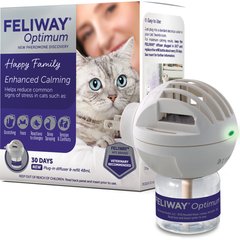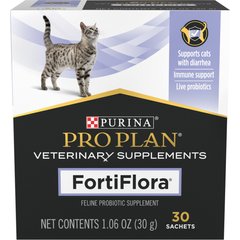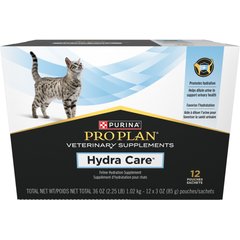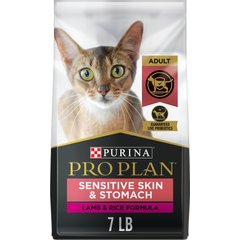Defining Senior Age in Cats
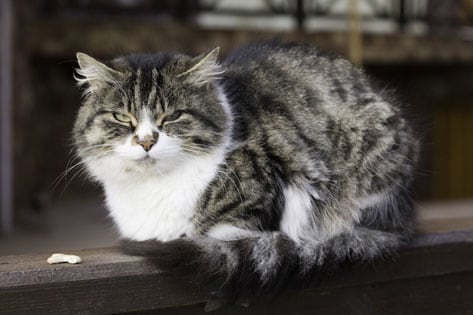
By Jessica Remitz
While most of us like to remember our cats as the fluffy kittens we brought home at just a few months old, they don't stay young forever. The best way to help keep your cat as healthy as possible later in life is to recognize signs of aging and learn more about common ailments that can affect senior cats.
What is a 'Senior Cat'?
“Though many guidelines talk about seven years being equal to one human year, the size of the animal really depends on the extent to which you can follow that rule,” said Dr. Heidi Lobprise, DVM, DAVDC and spokesperson for the International Veterinary Senior Care Society. In most cases, cats can be considered senior when they are between seven and ten years old.
According to the Journal of the American Animal Hospital Association (AAHA), the term “senior” can describe an aging pet, but the number of years considered to be “senior” varies. Other identifiers like species, breed, and the state of their organs can also help determine if a pet has reached old age.
“The terms 'geriatric' and 'senior' also differ,” Dr. Lobprise said. While a cat may be considered senior, it's likely still healthy or just beginning to experience signs of aging. Geriatric animals are at the older end of the aging spectrum and often experience more health-related issues.
Vet Recommended Health Support
- Feliway Optimum Enhanced Calming 30 Day Diffuser for Cats$29.99Chewy Price
- Purina Pro Plan Veterinary Diets FortiFlora Powder Probiotic Digestive Supplement for Cats, 30 count$30.99Chewy Price
- Purina Pro Plan Veterinary Diets Hydra Care Liver Flavored Liquid Supplement for Cats, 3-oz pouch, case of 12$14.99Chewy Price
- Purina Pro Plan Adult Sensitive Skin & Stomach Lamb & Rice Formula Dry Cat Food, 7-lb bag$28.08Chewy Price
Signs of Aging for Senior Cats
“There is a wide range of factors to help you recognize signs of aging in your pet — many of them similar to the signs of aging in people,” Dr. Lobprise said. Some of these factors may be more obvious, like an intolerance to exercise or limited mobility, while others are much more subtle. You’ll want to monitor your cat's eating patterns and body weight, as obesity can cause many issues, including osteoarthritis and diabetes. A too-thin animal could be having dental or thyroid issues. Sleeping patterns and cognitive behavior are also things to look out for; a cat that isn’t aware of its surroundings or has difficulty recognizing people may be experiencing early Alzheimer’s or dementia. Looking at the condition of its coat and how much your cat is grooming itself can also be indicative of its health.
“A less obvious but just as important sign of aging is how much your pet is drinking and urinating,” Dr. Lobprise said. How much your pet is or isn’t drinking can be indicative of many problems, from endocrine issues to kidney disease. It’s challenging to watch for, especially in multi pet households, but should be monitored if possible. Being aware of your pet’s overall body condition may also help you spot any abnormalities.
“We’re keeping animals healthier and healthier now, and as our pet population is graying an eventual cause of death is cancer, especially in specific breeds,” Dr. Lobprise said. “We need to be aware of lumps and bumps.”
Your pet’s behavior may also help indicate signs of aging. Cats that may be experiencing cognitive issues are very vocal during the evening and will meow as if they are lost. They’ll also tend to become more reclusive if something is wrong, and won’t display symptoms of an issue until it becomes more advanced.
Common Diseases for Senior Cats
“A very common and preventable disease that is prevalent in senior pets is dental disease,” Dr. Lobprise said. “While it’s not always a serious disease to have, it is one worth paying attention to and can change your cat’s demeanor if treated early and effectively.” You can spot periodontal disease by regularly checking your cat's teeth and gums for signs of bacterial infection such as inflammation, reddened gums and tartar. Left untreated, dental issues can impact a cat’s heart, kidneys, and the rest of the body.
Kidney and liver disease can be an issue for both cats and dogs, as can heart and valve disease. Endocrine issues including those impacting the adrenal glands and thyroid can also affect aging cats. Hyperthyroidism can make older cats lose weight or feel weak while obesity can cause diabetes. Unfortunately, Dr. Lobprise said it's more common for multiple problems to compound each other in senior pets than in younger animals.
Your pet’s cognitive function is also a common issue — are they aware of their surroundings? Do they recognize their owners? There are minor, natural declines in cognition as a part of the aging process, but as it advances, it can disrupt a pet’s quality of life. Supplements, pet food, and products designed to help cognitive function can help ease symptoms in these situations, but it's important to have your animal evaluated by its veterinarian before beginning treatment.
Working with Your Veterinarian
While senior and geriatric cats need more checkups than they did as adults, the AAHA reports that only 14 percent of senior animals have regular health screenings as recommended by their vets. “Having just an annual exam may allow subtle changes in your pet’s health progress into something worse that can impact the lifespan of your cat,” Dr. Lobprise said. She recommends getting senior animals checked by their vets at least twice a year, complete with blood work, urine analysis, and a full body examination, in addition to yearly dental cleaning if needed.
“Whether it’s kidney disease, heart disease, or cancer, the earlier something is caught, the better,” Dr. Lobprise added. “If you provide the best care that you can to make sure their lives are comfortable, they can be important parts of the family for a very long period of time.”
Talk to your veterinarian about what and how much your pet is eating, as different conditions will require different dietary needs to maintain a healthy weight. You should also take into consideration your cat's lean muscle mass and body score. Your pet could be the same weight as always, but may be retaining fluids and losing muscle as a result of something. Taking notes and drawing pictures, or taking a photo of your pet may also be helpful to recognize body changes as they happen.
Depression and anxiety can also be an issue with older pets, so you’ll want to discuss this and any other behavior-related issues with your veterinarian. Your vet can provide you with prescription medicine to help ease anxiety, but you’ll also want to make sure your cat's life at home is as comfortable as possible.
“When looking at the senior or geriatric pet, there will be some rough days,” Dr. Lobprise said. “Let them keep their space to themselves and if you know that there’s a situation that will be stressful to them, manage it.”
Explore More:
